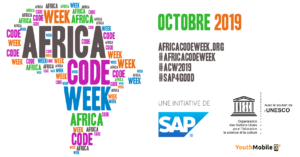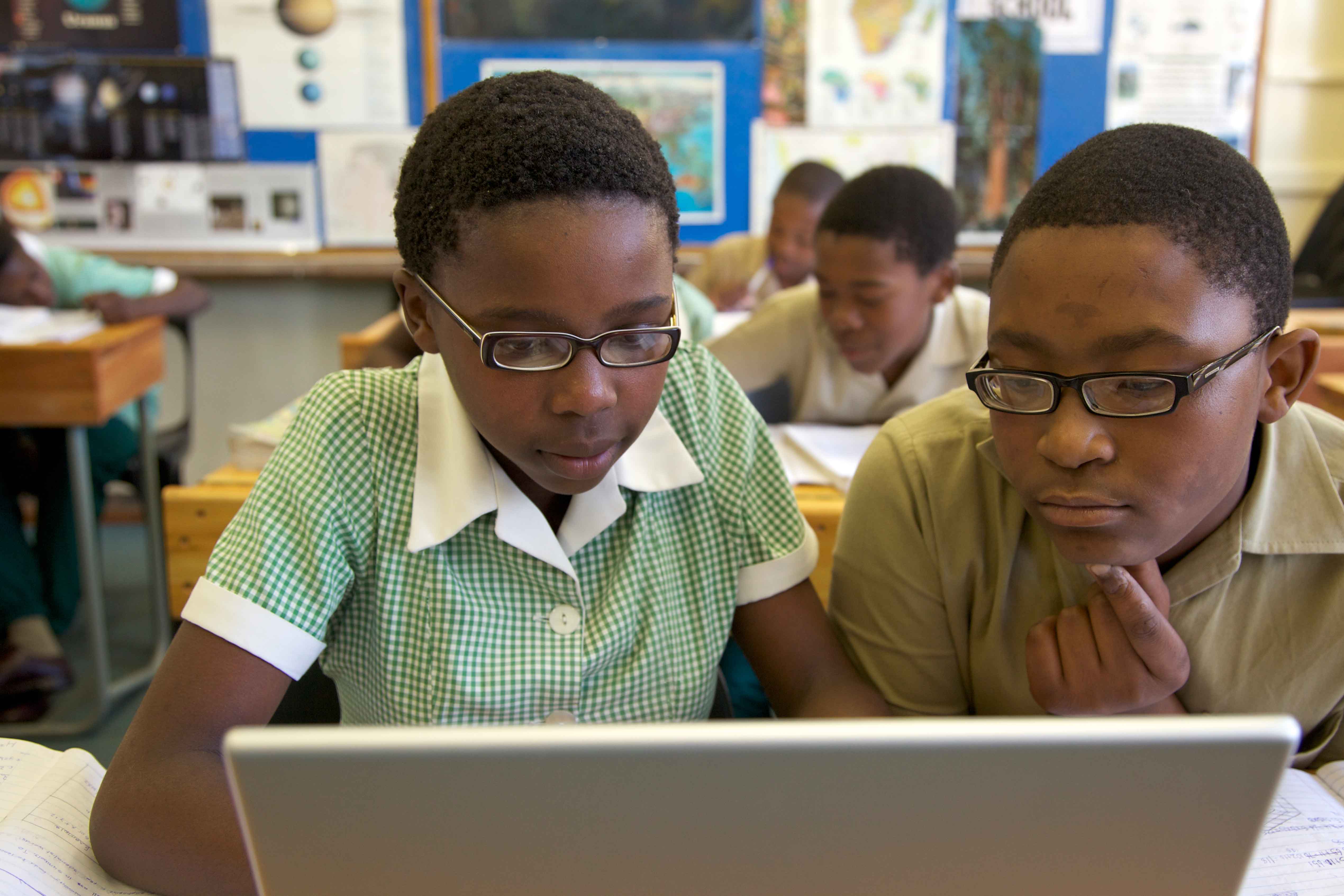- SAP, UNESCO & partners empower 3.85 million youth with basic coding skills in 2019.
- Africa Code Week 2019 results show impact on sustainable capacity building to support government-led digital skills development.
- Several African countries started adopting coding skills into school curricula.
 Africa Code Week (ACW) 2019 has once again exceeded expectations by empowering 3.85 million youth across 37 African countries. More notably, the progressive adoption of digital skills into the school curriculum of several African countries points to the growing influence of educational initiatives such as ACW in preparing the continent’s youth for the Fourth Industrial Revolution.
Africa Code Week (ACW) 2019 has once again exceeded expectations by empowering 3.85 million youth across 37 African countries. More notably, the progressive adoption of digital skills into the school curriculum of several African countries points to the growing influence of educational initiatives such as ACW in preparing the continent’s youth for the Fourth Industrial Revolution.
Cathy Smith, Managing Director at SAP Africa, says: “Once again, Africa’s vibrant youth population has stepped-up to claim its place in the global economy, with millions of young Africans taking on the challenge of learning essential digital skills. Africa Code Week’s growing partner ecosystem and continued focus on equipping teachers with tools and knowledge is creating a sustainable platform for building a bright future for the continent, the benefits of which will be seen for decades to come.”
Empowering youth by transforming teaching in the digital age
Launched in 2015 by SAP and UNESCO, Africa Code Week is on a mission to introduce coding skills to African youth 8-16 years of age by raising awareness of the importance of digital education and building teaching capacity.
In support of this, says Claire Gillissen-Duval, Director of EMEA Corporate Social Responsibility and Africa Code Week Global Lead at SAP, the 2019 edition expanded its outreach to a record-breaking number of teachers. “Together with our partners and thanks to their support, we witnessed more than 39,000 teachers mobilized as part of the October 2019 workshops, including over 17,500 in Morocco alone. In Nigeria, we also scaled our impact by working closely with the Niger and Taraba state governments, enabling teachers across the region to access the training for the first time. And thanks to the DreamOval Foundation in Ghana, children with disabilities were able to attend tailored coding classes ensuring equal opportunities for all.”
Francis Ahene-Affoh, SVP at DreamOval Foundation, said: “Teaching our youth digital skills is also an opportunity to inspire and engage their creativity and open the door to new thinking around the challenges we face as a country and a continent. Africa Code Week is a powerful tool to enable all-inclusive education that leaves no child behind.”
Governments now driving transformation of teaching, skills development
Since the launch of ACW in 2015, several countries including Cameroon, Ghana, Morocco and Tunisia have included digital literacy into their respective school curricula. Ahene-Affoh points to the Ghanaian government’s efforts to make coding skills a core pillar of basic education as a recent success made possible in part by ACW. “The impact of Africa Code Week in inspiring our youth to think innovatively and expand their capabilities in basic coding should not be underestimated. Over the course of the past five years that we have actively supported the program in Ghana, many children at the basic education level have been inspired to prepare themselves for the 21st century job market.”
Another success story can be found in Morocco, where digital skills were included in the country’s school curriculum benefitting millions of youth. According to Hon. Saaïd Amzazi, Morocco’s Minister of National Education, Vocational Training, Higher Education and Scientific Research, “Africa Code Week played a key role in making computer science both a priority and a celebration in every Moroccan school. The initiative helped trigger a passion for learning on an unprecedented scale while making best practices available for other nations to build on.”
In Africa Code Week 2019, Morocco secured first place among the 37 participating countries by successfully engaging 2.4+ million youth, of which 48% were girls. A Women Empowerment Workshop hosted by the Ministry in Rabat in October also engaged 28 teachers from 15 countries and focused on sharing best practices for girl mentoring, teacher training and access to digital education. Ranking second place in 2019, Cameroon’s engagement highlights strong government focus on capacity-building strategies.
The 2019 results also reveal that 47% of total ACW participants were girls. “Africa Code Week is a powerful tool for levelling the playing field and bringing more women and girls into the digital economy,” says Moez Chakchouk, UNESCO’s Assistant Director-General for Communication and Information. “The program is also a successful model in achieving Sustainable Development Goal #17, highlighting how local and global public-private partnerships can enhance international support for capacity-building programs.”
Partnering for greater impact
Actively supported by UNESCO YouthMobile, Google, Irish Aid, the German Federal Ministry for Economic Cooperation and Development (BMZ), Jokkolabs and the Camden Education Trust, the program works closely with African governments and more than 130 local organizations and 120 ambassadors across the continent.
Joining forces with SAP, Google supported Africa Code Week by allocating grants to 55 non-profits that focus on expanding access to digital skills to youth in 18 countries. More grassroots organizations received funding from BMZ (16 grants in 12 countries) and UNESCO (15 grants in 8 countries) to boost girls’ access to ACW training.
According to Gillissen-Duval, “Africa Code Week’s greatest strength is its strategic partnerships. With their help we are able to introduce an exciting new chapter for 2020 and beyond by completely shifting to the world of virtual! The program modification will increase our Pan-African reach to ensure no child or teacher is left behind, and will be formally announced over the next few weeks.”
In addition to the number of teachers and youth empowered, additional highlights for 2019 include Irish Aid, the Irish government’s official international development aid program, joinining the program as strategic partner and Hadi Partovi, tech entrepreneur and Code.org founder, attending a workshop at the Siyafunda Community Technology Centre in Johannesburg, South Africa.
According to Smith, the initiative helps prepare Africa’s youth for an uncertain future. “All stakeholders in the public and private sectors need to unite and support a radical overhaul in how we prepare Africa’s youth population, which is expected to reach 455 million by 2055, to be active participants in the digital economy. The impact of Africa Code Week on the African education sector is an encouraging sign for the future of the continent.”
Visit the ACW web site and 2019 infographic for more information on this fifth edition. Follow SAP and ACW on Twitter at @SAPNews, @SAP4Good and @AfricaCodeWeek.



